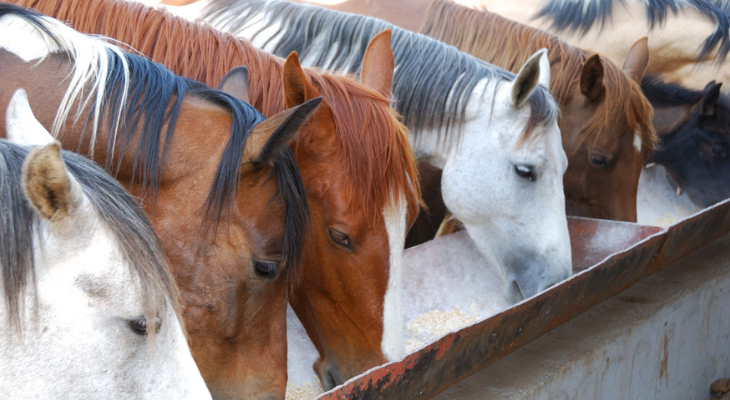
Making Safe Changes to Your Horse's Feed
Have you ever experienced an upset stomach after trying a new food? Your symptoms may have happened when your gastrointestinal system struggled to digest the unfamiliar ingredients in the dish. The same problem can affect your horse if you try to change its diet too quickly.
Deciding to Try a New Feed
Health concerns aren't the only reason to change your horse's feed. Although it may seem unwise to switch feeds if your horse is doing well, circumstances beyond your control could require the change. The company that makes the feed could change its formula or stop selling the brand your horse prefers. You may also need to change feed if your horse becomes more active, breeds, or even moves on to another pasture.
Has another horse recently joined your stable? If the previous owner didn't provide feed information, it may take a little while to find the ideal feed for your new addition. Keep in mind that stress due to the new environment can also play a part in feeding difficulties.
Safely Transitioning to a New Feed
Introducing a new type of feed too quickly poses several potential problems for horses, including:
- Stress Due to the Change in Routine
- Colic
- Diarrhea
- Nutritional Imbalances
Fortunately, you can smooth the adjustment process by following these tips:
- Compare Ingredients. If you're making a change because the old feed is no longer available, make sure that the ingredients in the new feed are similar. Pay attention to key ingredients like proteins and fats. If the new food has less protein, your horse's muscles may become weaker, or you might notice troubling changes in its coat or hooves.
- Use a Gradual Approach. Suddenly replacing your horse's usual feed with the new variety isn't a good idea. Instead, use a 20/80% ratio of new to old the first time you offer the new feed. A few days later, increase the proportion of new feed to 30 to 40%. Continue to gradually increase the percentage of new feed until your horse has completely transitioned.
- Take Your Time. Horse Illustrated recommends making changes over 7 to 10 days for major changes and three to five days for minor changes, like switching hay types. If your horse avoids the new feed or develops diarrhea, you might need to remove the new feed temporarily. In many cases, you may be able to reintroduce the new variety a few days later. This time, add the new food in smaller increments and increase the total transition time. The Horse recommends mixing the old and new feeds to make it impossible for your horse to push aside the new feed.
- Don't Make Too Many Changes at the Same Time. The more changes you make, the more likely your horse will experience feeding problems. For example, it's not a good idea to move your horse to a new pasture and introduce a new grain at the same time. Making multiple changes greatly increases the likelihood of digestive problems and also makes it hard to determine which type of feed is responsible for the issues.
- Talk to Your Equine Veterinarian. Before making changes to your horse's diet, especially drastic ones, it's important to discuss your plans with your equine veterinarian. He or she can recommend the best feed choices for your horse and offer a few recommendations that will make the transition easier.
Are you worried about your horse's health or nutrition? Get in touch with us to chat with the equine vet.
Sources:
Horse Illustrated: The Science Behind Gradual Feed Changes, 9/9/2016
https://www.horseillustrated.com/horse-health-the-science-behind-gradual-feed-changes
The Horse: How to Safely Make Changes to Your Horse’s Feed, 1/8/2023
https://thehorse.com/1119521/how-to-safely-make-changes-to-your-horses-feed/
Equine Wellness: 3 easy tips to safely change your horse’s feed, 11/18/2022
https://equinewellnessmagazine.com/3-easy-tips-to-safely-change-your-horses-feed/
